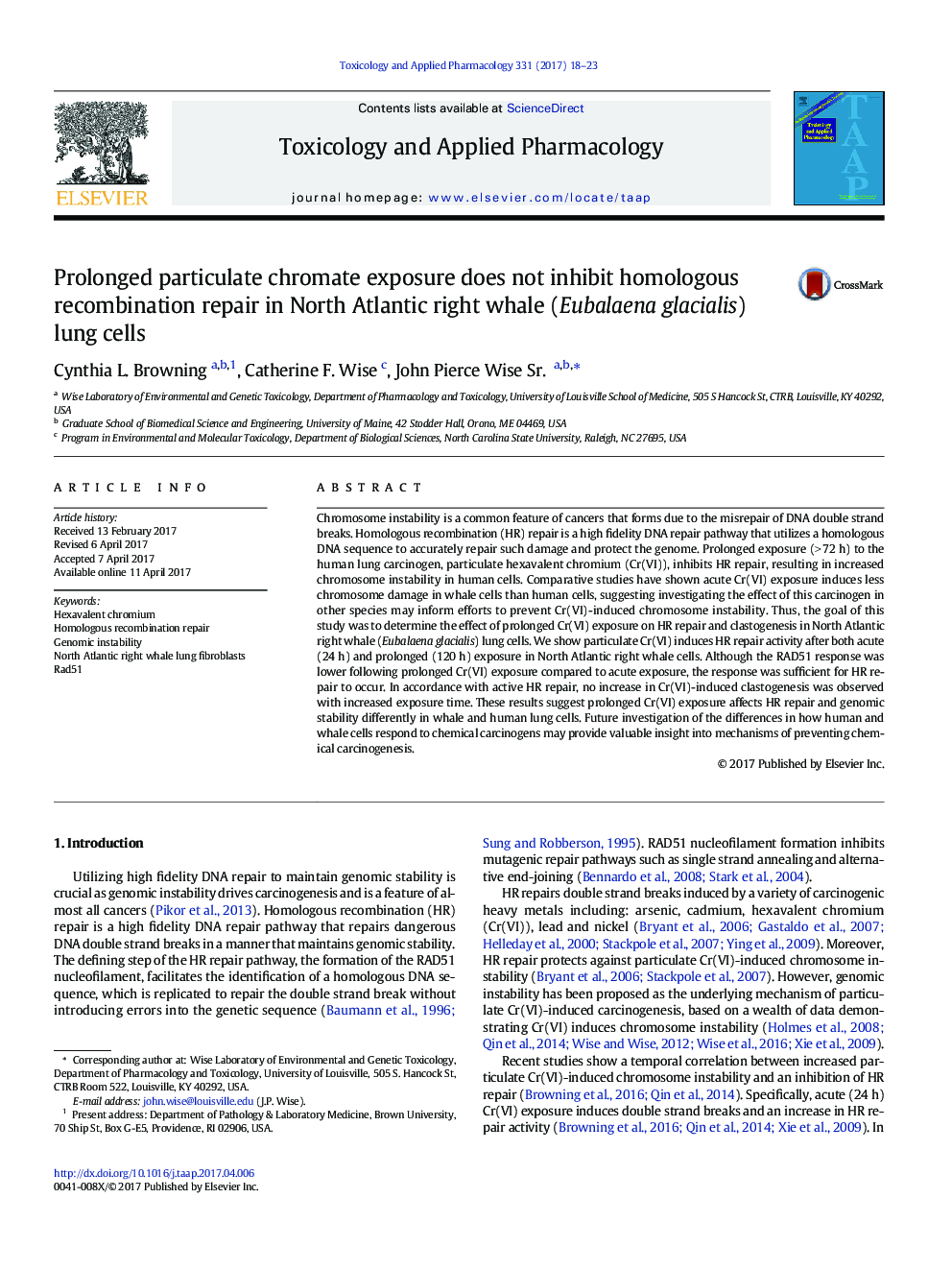| کد مقاله | کد نشریه | سال انتشار | مقاله انگلیسی | نسخه تمام متن |
|---|---|---|---|---|
| 5558282 | 1561131 | 2017 | 6 صفحه PDF | دانلود رایگان |

- Sister chromatid exchanges increased after acute and prolonged chromate exposure.
- Acute chromate exposure induced more RAD51 foci formation than prolonged exposure.
- Acute and prolonged chromate exposure are comparably genotoxic to right whale cells.
Chromosome instability is a common feature of cancers that forms due to the misrepair of DNA double strand breaks. Homologous recombination (HR) repair is a high fidelity DNA repair pathway that utilizes a homologous DNA sequence to accurately repair such damage and protect the genome. Prolonged exposure (>Â 72Â h) to the human lung carcinogen, particulate hexavalent chromium (Cr(VI)), inhibits HR repair, resulting in increased chromosome instability in human cells. Comparative studies have shown acute Cr(VI) exposure induces less chromosome damage in whale cells than human cells, suggesting investigating the effect of this carcinogen in other species may inform efforts to prevent Cr(VI)-induced chromosome instability. Thus, the goal of this study was to determine the effect of prolonged Cr(VI) exposure on HR repair and clastogenesis in North Atlantic right whale (Eubalaena glacialis) lung cells. We show particulate Cr(VI) induces HR repair activity after both acute (24Â h) and prolonged (120Â h) exposure in North Atlantic right whale cells. Although the RAD51 response was lower following prolonged Cr(VI) exposure compared to acute exposure, the response was sufficient for HR repair to occur. In accordance with active HR repair, no increase in Cr(VI)-induced clastogenesis was observed with increased exposure time. These results suggest prolonged Cr(VI) exposure affects HR repair and genomic stability differently in whale and human lung cells. Future investigation of the differences in how human and whale cells respond to chemical carcinogens may provide valuable insight into mechanisms of preventing chemical carcinogenesis.
225
Journal: Toxicology and Applied Pharmacology - Volume 331, 15 September 2017, Pages 18-23